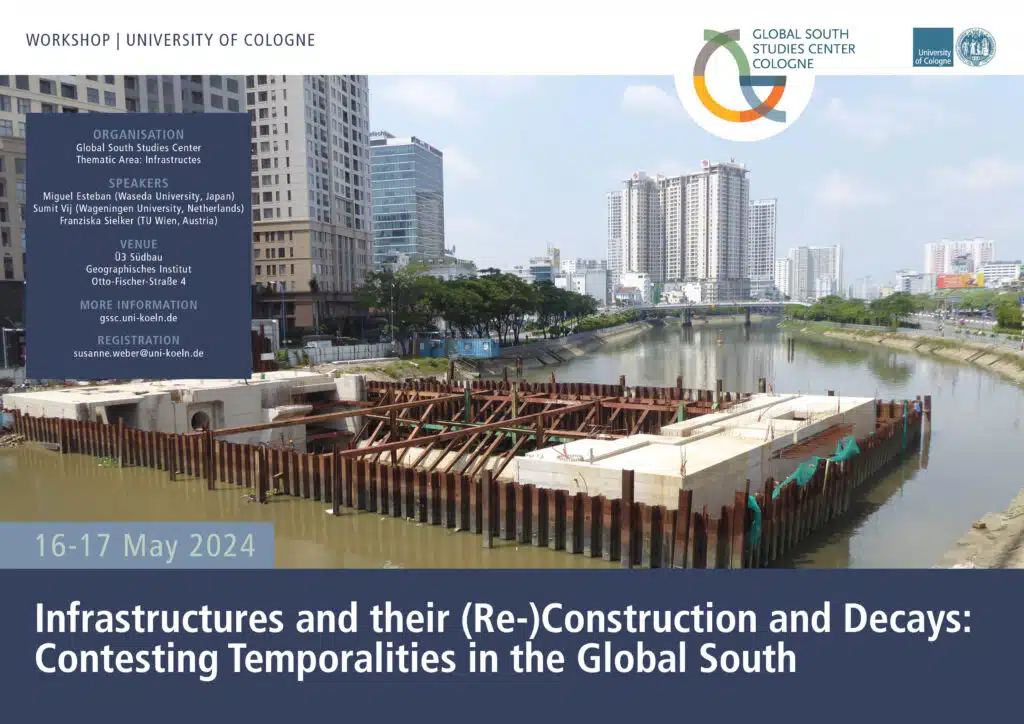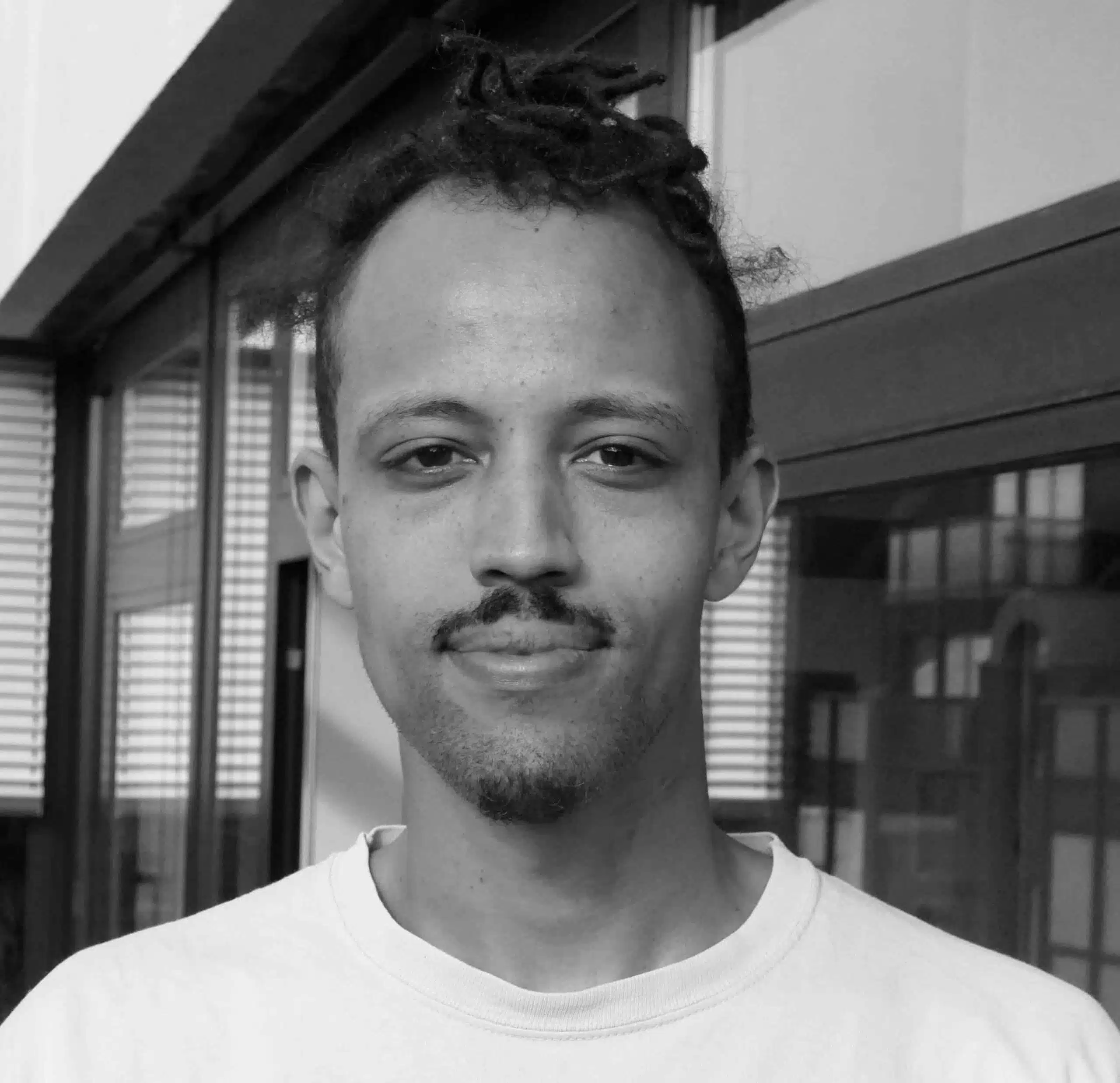Workshop: Infrastructures and their (Re-)Construction and Decays: Contesting Temporalities in the Global South
16-17 May 2024
Venue:
Ü3 Südbau
Geographisches Institut
Otto-Fischer-Straße 4
Speakers:
Miguel Esteban (Waseda University, Japan)
Sumit Vij (Wageningen University, Netherlands)
Franziska Sielker (TU Wien, Austria)
Registration:
susanne.weber@uni-koeln.de
Program
Abstract
Infrastructures, vital for societal functioning, operate at various levels, fostering connectivity. Traditionally propelling economic and transportation development, they facilitate communication and trade across distances. Recent prominence in globalization, exemplified by projects like the Chinese Road and Belt Initiative and digital infrastructures, is linked to future development. However, challenges such as migration and environmental change offer new perspectives. While infrastructures shield against natural hazards, promote resilient cities, and conserve nature, they can also be used to control, segregate, and impede population flows.
Infrastructures influence societies not only through physical structures but also through experiences, perceptions, and imaginings associated with them, shaping risk communication, daily habits, place identity, and narrative formation. They can either unite or divide, raising questions about participation, power dynamics, and social inclusion or exclusion.
Beyond territorial impact, infrastructures possess temporal dimensions, embodying specific forms not solely oriented towards the future. Anthropologist Akhil Gupta views infrastructures as a process with “multiple temporalities,” marked by open futures, decay, and ruination. This challenges the perception of infrastructure as a static entity, highlighting its ephemeral, evolving nature.
The interdisciplinary workshop aims to delve into the construction, decay, deconstruction, and reconstruction of infrastructures in the Global South, exploring their implications for spatial and temporal orders. It challenges the presumption that infrastructure is inherently positive, acknowledging that challenges extend beyond adverse circumstances or resource shortages. The maintenance or alteration of infrastructures is intricately linked to the struggle for the “right” temporal order of society.
Incorporating anthropological, human geographical, historical, cultural, and literary perspectives, the workshop combines empirical and theoretical reflections on infrastructures and their temporalities. It seeks to facilitate the exchange of disciplinary insights, providing a nuanced understanding of infrastructure research in the Global South beyond the simplistic notion that “Infrastructure is the future.”
The interdisciplinary workshop will address the following key questions:
1. In what ways do infrastructures transcend their physical structures, influencing and being influenced by societies through experiences, perceptions, imaginative risk communication, and daily routines?
2. How do the intricate interactions between new protective infrastructures and societies unfold in complex socio-environmental dynamics, particularly in response to environmental change?
3. How do the temporalities of infrastructures impact social dynamics, including the establishment of power relations, social inclusion, and exclusion?
4. Who are the primary stakeholders involved in shaping the temporalities of infrastructure (decay, deconstruction, reconstruction), and how do their actions contribute to either promoting social cohesion or exacerbating division within communities?



